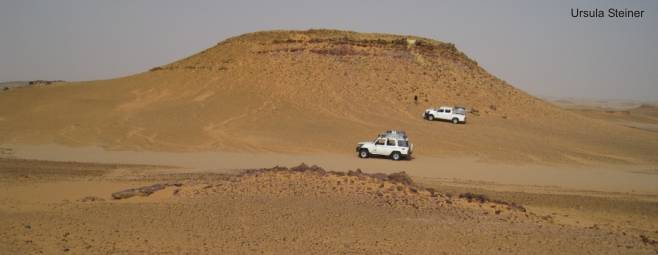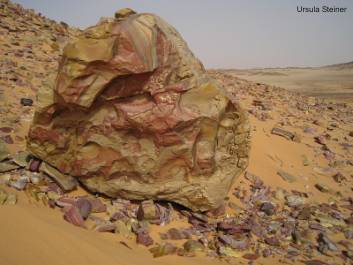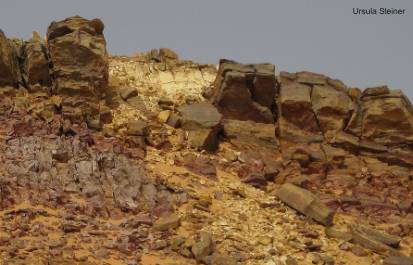|
The "Jasper Mountain"
A further structur of subvolcanic origin in the Gilf Kebir crater-field (GKCF)
June 2010
Norbert Brügge,
Germany
Dipl.-Geol.
With friendly permission by Richard de
Nul, Belgium, which made all pictures available
Update: 19.12.2011 with new pictures by Ursula Steiner,
Switzerland (below)
During an expedition to the Gilf Kebir
in 2009 found Richard de Nul, and its companions, in the northern part of
the Gilf Kebir crater-field (GKCF) a most remarkable subvolcanic structure.
The crater-like mountain consisting of tilted sandstone layers with strongly
siliceous-ferruginous impregnations. The crater (plug) is probably completely
filled with jasper and in cracks with chalcedony.
We called the structure as "Jaspis (Jasper)
Mountain". The location is about 24�N / 27�E (the exact coordinates are known
to me).
In the rare and small cavities of the massive jasper, chalcedony and
quartz crystals have been observed. Jasper (dense, opaque, microcrystalline)
and chalcedony (fibrous cryptocrystalline) are both mineralogically a variety
of quartz (SiO2). Jasper is usually red, brown or yellow coloured by oxides
of iron. Due to the beautiful colours and the attractive banding these stones
are often used as a decorative stone. In the past the prehistoric made tools
of it.
The occurrence of Jasper is mainly bound on ranges of the silification
in volcanic rocks or other penetrated rocks. On fissures circulate hot solutions
during volcanic activities.
This is the first important occurrence of a significant amount of hydrovolcanic
accumulated quartz in the Gilf Kebir crater-field (GKCF). In relation to the
origin is it not possible to recognize a relationship to the Libyan Desert
Glass. The LDG was a highly enriched gel-like Silica mass with low water content
(hyalite).
Jasper has been positively identified by analysis of density and refractive
index at the Academy for Mineralogy, Antwerp.
|
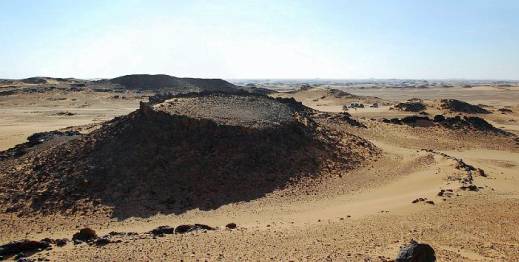
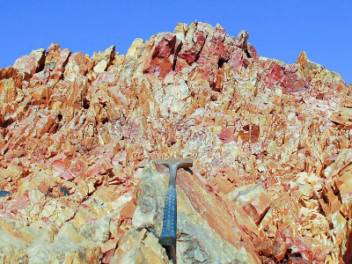
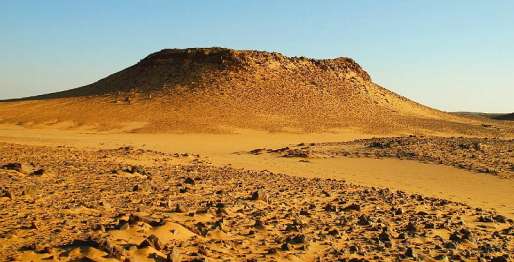
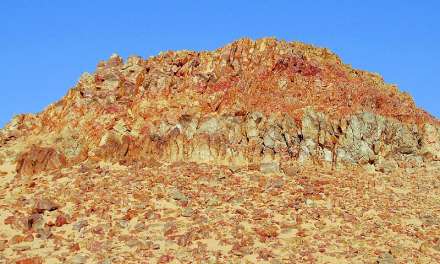
Surrounding of the Jasper Mountain
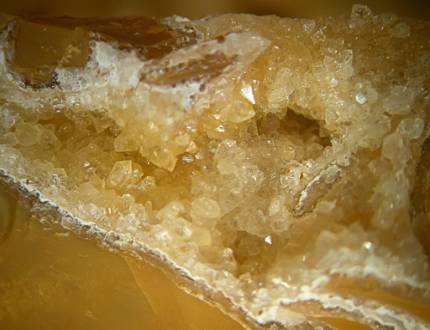
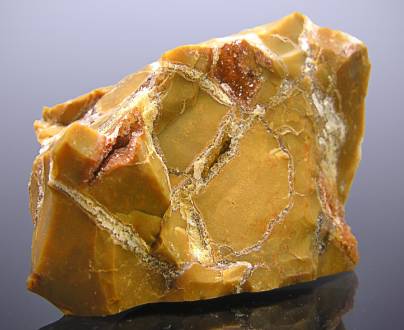
Quartz, Chalcedony, width: 3 mm
Jasper, width : 10 cm
|
| |
|
























